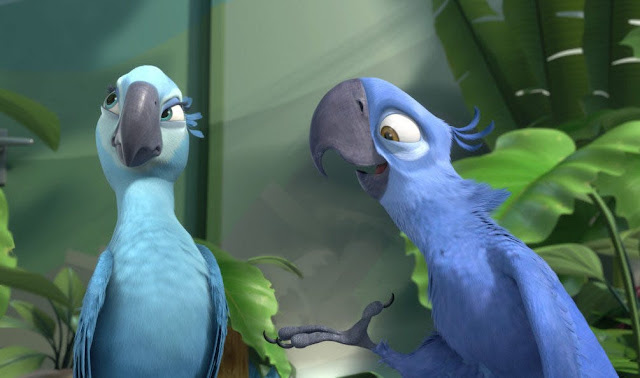Real Animal twins of Cartoon Animals
Why don’t we talk about cartoons! Everybody loves cartoons because they are entertaining, funny, educational, and emotional. We all learn some good qualities from cartoons. Some cartoon characters inspired ourselves to face the challenges in our life, taught how to live a good life. We are going to take a look at the real animal twins of animal cartoon characters who speak human language. Do you know they are real animals? Let’s see.
Timon and Pumbaa
 |
The Lion King (1994) |
 |
The Lion King (2019) |
Timon is a Meerkat
(Suricata suricatta). Meerkat is a member of the mongoose family.
Lives in southwest Africa. They are famed for their upright posture. Because
they can stand on their rear legs.
Pumbaa is a
Common Warthog (Phacochoerus africanus). Member of the pig family. They have
large, flat heads covered with "warts," which are actually protective
bumps. Also, they have four tusks.
Zazu
 |
The Lion King (1994) |
 |
The Lion King (2019) |
The reporter of
king Mufasa is a Red-billed Hornbill. (Tockus erythrorhynchus). Lives in
open savanna, woodland, and thorn scrub in sub-Saharan Africa.
When talking
about Hornbills, there are two types of Hornbills living in Sri Lanka. They are
Grey Hornbill and Malabar pied hornbill. Among them, Grey Hornbill is endemic
to Sri Lanka.
Road Runner and While. E. Coyote
Greater
Roadrunner (Geococcyx californianus) is a long-legged, fast-running bird
(42 km/h) in the cuckoo family. Lives in deserts of the Southwestern United States
and Mexico. This bird can fly. But they like to spend the most time on the ground.
Roadrunners hold a special place in Native American and Mexican legends. They were revered for their courage,
strength, speed, and endurance. Furthermore, the X-shaped footprint of the roadrunner (Two toes pointing forward and two backward) are used as sacred
symbols by Pueblo tribes to ward off evil. This X shape disguises the direction
the bird is heading. We cannot tell which way is forward. Therefore, it is thought
to prevent evil spirits from following.
When it comes to Coyote (Canis latrans), This guy can run about 56 – 69 km/h. This courageous beast who never gives up in the cartoon is actually faster than roadrunner in real life. So, our whole childhood was a lie! Coyotes are smaller than wolves. They are also called as called prairie wolves or brush wolves.
Tasmanian Devil
Tasmanian Devil (Sarcophilus
harrisii) is a carnivore and marsupial, which means related to Kangaroos
and Koalas. They live in Tasmania. The extinct Tasmanian Tigers are also
members of this family. Tasmanian Devils are endangered species. Their oversize head, neck, and jaws are well
suited to crushing bones. But they are not harmful to humans.
Blu
We saw this wonderful bird is in Rio (2011) movie. Spix's Macaw (Cyanopsitta
spixii) is a small macaw species that is native to brazil. The sad news is,
they are considered Extinct in Wild by IUCN because there are no confirmed
sightings of wild individuals. About to reintroduce to the natural habitats.
There was a huge flock in the jungle was found in Rio 2 movie. In real life, it is
just a dream.
King Julian
Lemur (Lemur
catta) is a mammal of the order Primates. There are different types of
lemurs in existence today, all of which are endemic to Madagascar. Despite King
Julien’s easygoing attitude, life as a lemur isn’t what it seems. they are
considered Critically Endangered.
Spirit: Stallion of the Cimarron
Another movie
that made our childhood beautiful. This outstanding 2D animation movie was
based on the life of Kiger mustang (Equus ferus caballus). It presented the
inspiration, courage, attitude, and leadership of the mustang in heart touching
way. The music and scenes were amazing. Kiger Mustangs are only found in the southern
part of the U.S. state of Oregon. Moreover, they are one of the rarest horse breeds
in the world.
Did you know, unlike other animated movies, Spirit is based on reality as much as possible. ‘Spirit: Stallion of the Cimarron was a Kiger Mustang named Donner (AKA ‘Spirit’) that lives at the ‘Return to Freedom American Wild Horse Sanctuary’. This is him.
SpongeBob
Honestly, I thought he is a piece of cheese for the first time. But it is not. He is a sponge. Sponges are
real! These are not the sponges we use in our houses. We are talking about an
organism living under the sea. Yellow tube sponge (Aplysina fistularis) is
the organism that became popular among kids as SpongeBob. Sea sponges cannot
walk or swim. They are like corals. They are abundant in the Caribbean, where
it is commonly found in reefs of open water areas.
-Naturalist Bro-





















Comments
Post a Comment